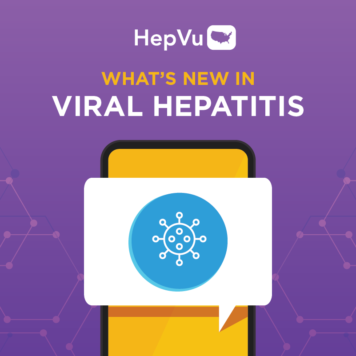Selected and summarized by Ronald O. Valdiserri, MD, MPH, Professor, Department of Epidemiology, Rollins School of Public Health, Emory University, and Co-Chair of HepVu.
Dr. Valdiserri reviews significant articles on prevention, public health, and policy advances in viral hepatitis. This month, he highlights “Impact of pharmacist motivational interviewing on hepatitis B vaccination in adults with diabetes.” LA Berenbrok, C Gessler, L Kirisci, O Herrera-Restrepo, KC Coley. J Amer Pharm Assoc 2023; vol 63: 66-73.
What question(s) does this study address?
The Centers for Disease Control and Prevention (CDC) reports that, compared with adults without diabetes, adults with diabetes have a 60% higher prevalence of past or present Hepatitis B virus (HBV) infection and twice the odds of acquiring acute Hepatitis B. Because of the substantial morbidity and mortality associated with Hepatitis B infection, the Advisory Committee on Immunization Practices (ACIP) recommended in 2011 that all unvaccinated adults with diabetes, aged 19—59 years of age, should receive Hepatitis B vaccination. For unvaccinated diabetic adults aged 60 and older, ACIP recommended Hepatitis B vaccination at the discretion of the patient’s health care provider.
In 2021, an analysis of Hepatitis B vaccination among American adults with diabetes reported that in 2018, only 33% of diabetic adults aged 18-59 had received Hepatitis B vaccination. Furthermore, findings from the study revealed that persons with diabetes were not more likely to have received Hepatitis B vaccination compared to adults without diabetes. Motivational interviewing (MI), first used in the context of addiction treatment, is a brief communication intervention that enhances a person’s internal motivation to change behaviors (in this instance, to accept Hepatitis B vaccination) by exploring and helping them to address their own ambivalent attitudes. Berenbrok and his colleagues sought to evaluate the impact of pharmacist-led MI on Hepatitis B vaccination rates among previously unvaccinated diabetic adults in community pharmacy settings. They note that their study was conducted before the 2022 ACIP recommendation for universal Hepatitis B vaccination of all adults aged 19-59 years of age.
What are the major findings of this report/article?
- The study was conducted from 5/1/2019 through 2/29/20 and involved 58 community pharmacy locations: 29 intervention sites in Pennsylvania and 29 control sites in Pennsylvania and Maryland.
- Pharmacy staff at all sites received the usual annual training on immunizations available at their pharmacies. Pharmacy staff at the intervention sites received a one-hour long webinar-based training on MI; in addition, a short, live training session was offered at each MI intervention pharmacy. Also, monthly operations calls were held for intervention groups to share best MI practices.
- At the MI group pharmacies, alerts were generated during prescription processing when a patient was eligible for intervention. The MI intervention consisted of a face-to-face conversation initiated by the pharmacist when patients picked up their prescriptions.
- Of 2896 eligible patients from the MI group pharmacies, half (54%) received the MI intervention.
- Although small, there was a statistically significant increase (3.71%) in Hepatitis B vaccination when comparing eligible persons who received the MI intervention to eligible individuals in the control group.
- Of the 65 patients from the MI group pharmacies who initiated Hepatitis B vaccination, 40 (61.5%) completed the entire series. Four (4) patients in the control group initiated Hepatitis B vaccination and none completed the series.
What are the implications for the prevention and control of viral hepatitis?
- This study provides a proof of concept that an MI intervention promoting Hepatitis B vaccination delivered by community pharmacists can reduce vaccine hesitancy and that community pharmacists can effectively complete a vaccination series requiring multiple doses.
- The findings from this study support using pharmacist vaccine administration to increase immunizer capacity. Expanding the number of individuals delivering this important clinical preventive service is consistent with the goals of the Viral Hepatitis National Strategic Plan and timely, given the CDC’s recent recommendation for universal hepatitis B vaccination in all adults aged 19-59 years of age.

